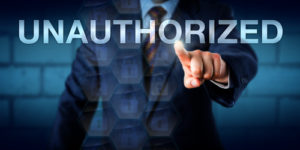 Robert B. Milligan, Partner and Co-Chair of Seyfarth’s National Trade Secret, Computer Fraud, and Non-Compete practice group, just finished co-editing and co-authoring a prominent new California trade secret treatise.
Robert B. Milligan, Partner and Co-Chair of Seyfarth’s National Trade Secret, Computer Fraud, and Non-Compete practice group, just finished co-editing and co-authoring a prominent new California trade secret treatise.
This Supplement to the Third Edition practice guide addresses the Defend Trade Secrets Act (DTSA ), which was enacted in 2016. This Supplement includes additional practical tips and strategies related to
Continue Reading Seyfarth’s Robert Milligan Co-Edits and Co-Authors New Treatise on Defend Trade Secrets Act
 On Tuesday, October 10, 2017, the United States Supreme Court
On Tuesday, October 10, 2017, the United States Supreme Court  Continuing our annual tradition, we present the top developments/headlines for 2016 in trade secret, computer fraud, and non-compete law. Please join us for our first
Continuing our annual tradition, we present the top developments/headlines for 2016 in trade secret, computer fraud, and non-compete law. Please join us for our first  The Computer Fraud and Abuse Act (“CFAA”) gives rise to an actionable claim if someone “knowingly access[es] a computer without authorization or exceed[s] authorized access.” 18 U.S.C. § 1030(a)(1). The term “exceeds authorized access” is defined as “to access a computer with authorization and to use such access to obtain or alter information in the computer that the accesser is
The Computer Fraud and Abuse Act (“CFAA”) gives rise to an actionable claim if someone “knowingly access[es] a computer without authorization or exceed[s] authorized access.” 18 U.S.C. § 1030(a)(1). The term “exceeds authorized access” is defined as “to access a computer with authorization and to use such access to obtain or alter information in the computer that the accesser is




